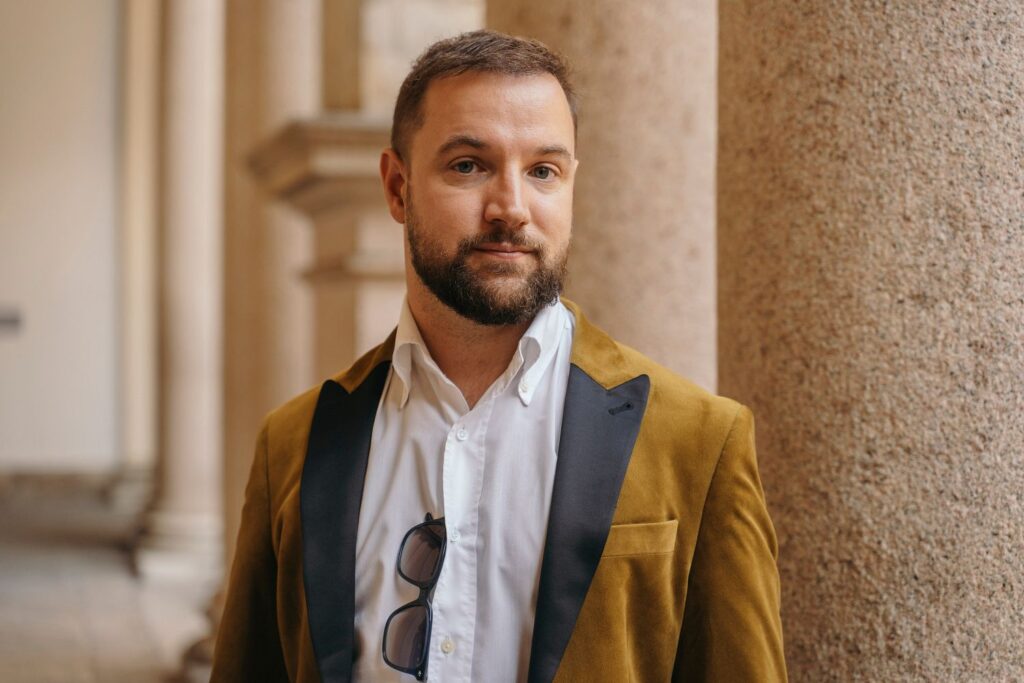Luxury branding sounds like it is all about fancy logos and high price tags. The real surprise is that over 80 percent of luxury brand value comes from emotional connections and social status rather than product features. Many people miss this and think it’s just about exclusivity but the heart of luxury branding is turning a product into a powerful symbol that shapes personal identity and inspires lasting loyalty.
Table of Contents
- Defining Luxury Branding: What It Is And Its Essence
- The Importance Of Luxury Branding In Today’s Market
- Core Concepts Of Luxury Branding And Their Impact
- How Luxury Branding Influences Customer Experience
- The Challenges And Opportunities In Luxury Branding
Quick Summary
| Takeaway | Explanation |
|---|---|
| Luxury brands create unique experiences. | They transform commodities into extraordinary narratives that evoke emotions and aspirations among consumers. |
| Scarcity enhances luxury brand value. | Perceived rarity and exclusivity are crucial in crafting premium brand identities and maintaining consumer appeal. |
| Digital transformation reshapes engagement strategies. | Brands must balance online presence with authentic storytelling to meet modern consumer expectations while preserving luxury essence. |
| Emotional connections drive customer loyalty. | Successful luxury branding involves creating deep, personal relationships that go beyond the transactional nature of traditional marketing. |
| Cultural intelligence is vital in emerging markets. | Adapting luxury strategies to diverse cultural contexts allows brands to prosper in new global markets while maintaining consistency. |
Defining Luxury Branding: What It Is and Its Essence
Luxury branding represents a sophisticated strategic approach that transcends traditional marketing methodologies. At its core, luxury branding transforms products and services from mere functional commodities into extraordinary experiences that communicate exceptional status and emotional value. Explore our guide on understanding luxury branding best practices to dive deeper into this nuanced discipline.
The Psychological Essence of Luxury Perception
Luxury branding operates on profound psychological principles that differentiate it from standard market positioning. According to research from the International Journal of Marketing Studies, luxury brands create symbolic value far beyond functional utility. These brands craft narratives that resonate with consumers’ deepest aspirations, transforming products into powerful symbols of personal identity and social achievement.
Below is a table comparing key psychological elements that shape the perception of luxury branding, summarizing their unique roles in building brand value and customer loyalty.
| Element | Description | Impact on Luxury Branding |
|---|---|---|
| Exclusivity | Sense of rarity and limited accessibility | Enhances prestige, drives desirability |
| Prestige | Signals superior quality and elevated social status | Elevates brand image and aspiration |
| Emotional Connection | Fosters deep personal and aspirational relationships | Strengthens brand loyalty |
| Scarcity | Perceived low availability and unique product access | Creates urgency and specialness |
| Heritage | Deep historical and cultural narrative ties | Builds credibility, appeals to tradition |
| Craftsmanship | Emphasis on exceptional quality and meticulous production | Differentiates through tangible excellence |
Key psychological elements driving luxury brand perception include:
![]()
- Exclusivity: Creating a sense of rarity and limited accessibility
- Prestige: Communicating superior quality and elevated social status
- Emotional Connection: Establishing deep personal and aspirational relationships with consumers
Strategic Construction of Luxury Brand Value
Building a luxury brand requires meticulous attention to intricate details that collectively communicate exceptional quality. Successful luxury brands do not merely sell products they curate experiences that engage multiple sensory and emotional dimensions.
 Every touchpoint communication design packaging and customer interaction must consistently reflect the brand’s premium positioning.
Every touchpoint communication design packaging and customer interaction must consistently reflect the brand’s premium positioning.
The strategic construction involves carefully orchestrating elements such as:
- Impeccable craftsmanship
- Distinctive visual and narrative identity
- Consistent premium positioning across all brand interactions
Luxury branding ultimately represents a sophisticated art of transforming material offerings into extraordinary narratives that transcend conventional market boundaries.
The Importance of Luxury Branding in Today’s Market
Luxury branding has evolved from a niche marketing strategy to a critical competitive differentiator across global markets. In an increasingly saturated commercial landscape, luxury brands must continuously reinvent their approach to maintain relevance and emotional resonance. Learn more about brand differentiation strategies to understand how top luxury brands stay ahead.
Digital Transformation and Consumer Expectations
The contemporary marketplace demands more than traditional luxury positioning. According to research on sustainable luxury strategies, brands must now balance digital innovation with authentic storytelling. Modern consumers especially younger generations seek brands that offer more than products they want meaningful experiences and authentic narratives that align with their personal values.
Key digital transformation imperatives for luxury brands include:
- Creating immersive digital experiences
- Maintaining brand exclusivity in online spaces
- Developing personalized engagement strategies
- Leveraging technological innovations responsibly
Economic and Social Signaling Function
Luxury branding performs a complex economic and social function beyond simple commercial transactions. These brands serve as powerful social signaling mechanisms that communicate status, taste and personal achievement. By carefully curating brand identity and experience luxury brands transform material products into symbols of aspiration and personal excellence.
The strategic importance of luxury branding extends across multiple dimensions:
-
Generating premium pricing strategies
-
Building long term customer loyalty
-
Creating emotional connections that transcend traditional consumer relationships
Understanding luxury branding is no longer optional but essential for brands seeking sustainable growth and meaningful market positioning.
Core Concepts of Luxury Branding and Their Impact
Luxury branding encompasses a sophisticated array of strategic principles that distinguish premium offerings from ordinary market propositions. Explore the intricate role of detail in luxury branding to comprehend how minute elements create extraordinary brand experiences. The foundation of luxury branding lies in understanding its multidimensional nature that extends far beyond traditional marketing approaches.
Foundational Conceptual Frameworks
The conceptual architecture of luxury branding rests on several critical pillars that transform products into powerful symbolic representations. According to research from the International Journal of Marketing Studies, luxury brands operate through complex psychological and emotional mechanisms that transcend mere functional utility.
Key foundational concepts include:
- Scarcity: Creating perceived rarity and exclusive accessibility
- Heritage: Establishing deep historical and cultural narrative connections
- Craftsmanship: Communicating exceptional quality and meticulous production processes
Strategic Value Generation Mechanisms
Luxury branding generates value through sophisticated strategic mechanisms that transform material products into extraordinary experiences. These mechanisms involve creating intricate emotional landscapes that resonate with consumers’ deepest aspirations and self perception.
Critical value generation strategies encompass:
- Developing powerful narrative frameworks
- Cultivating sensory and experiential dimensions
- Establishing consistent premium positioning across all brand interactions
Ultimately luxury branding represents a complex ecosystem of strategic communication that elevates products from mere commodities to powerful cultural and emotional symbols.
How Luxury Branding Influences Customer Experience
Customer experience represents the most critical touchpoint where luxury branding transforms abstract promises into tangible emotional interactions. Discover the comprehensive guide to luxury brand experiences to understand how top brands craft extraordinary customer journeys. Luxury brands do not simply sell products they create immersive narratives that engage customers on profound psychological and sensorial levels.
Emotional Architecture of Customer Interactions
Luxury branding constructs intricate emotional landscapes that transcend traditional transactional relationships. According to research on luxury and service excellence, customer experience in luxury contexts is meticulously designed to evoke specific emotional responses and create lasting psychological impressions.
Key emotional engagement strategies include:
- Anticipatory Service: Predicting and exceeding customer expectations
- Personalization: Creating bespoke experiences tailored to individual preferences
- Sensory Storytelling: Engaging multiple sensory dimensions during interactions
Experiential Value Generation Mechanisms
Luxury brands strategically engineer customer experiences that transform routine interactions into memorable moments. This involves carefully choreographing every touchpoint to communicate exclusivity precision and emotional resonance. The objective extends beyond satisfying functional needs to creating profound emotional connections that elevate brand perception.
Critical experience design principles encompass:
- Maintaining consistent premium quality across all interaction points
- Creating seamless omnichannel engagement strategies
- Developing intuitive and sophisticated service protocols
Ultimately luxury branding turns customer experience into an art form where every interaction becomes a testament to the brand’s exceptional commitment to excellence.
The Challenges and Opportunities in Luxury Branding
Luxury branding stands at a complex intersection of tradition and innovation, presenting both unprecedented challenges and extraordinary opportunities for strategic transformation. Read our detailed insights on brand differentiation strategies to navigate these intricate market dynamics effectively. The contemporary luxury landscape demands unprecedented agility and profound understanding of evolving consumer expectations.
Navigating Digital Transformation Challenges
The digital revolution has fundamentally reshaped luxury brand engagement strategies. According to research on luxury brand sustainability, brands must now balance technological innovation with authentic storytelling while maintaining their core exclusivity and premium positioning.
Key digital transformation challenges include:
- Authenticity Preservation: Maintaining brand integrity in digital spaces
- Personalization at Scale: Creating individualized experiences across digital platforms
- Technology Integration: Seamlessly blending digital innovations with traditional luxury narratives
Strategic Opportunities in Emerging Markets
Luxury brands face complex but promising opportunities in emerging global markets. Modern luxury strategies require nuanced approaches that respect cultural diversity while maintaining a consistent global brand essence. This involves developing sophisticated communication strategies that resonate across different social and cultural contexts.
Critical strategic opportunities encompass:
- Expanding into digital-first consumer markets
- Developing culturally intelligent brand narratives
- Creating flexible brand experiences that adapt to diverse consumer expectations
Navigating luxury branding challenges demands continuous innovation strategic flexibility and a deep understanding of evolving consumer psychology.
This table outlines the main strategic challenges and opportunities currently facing luxury brands as they adapt to new technologies and global market dynamics.
| Challenge/Opportunity | Description | Strategic Importance |
|---|---|---|
| Authenticity Preservation | Maintaining brand integrity within digital spaces | Safeguards brand value and trust |
| Personalization at Scale | Delivering individualized experiences across all digital platforms | Meets growing consumer expectations |
| Technology Integration | Seamlessly blending digital innovation and traditional luxury values | Balances innovation and exclusivity |
| Digital-First Market Expansion | Targeting consumer growth in emerging digital markets | Secures long-term global growth |
| Culture-Intelligent Narratives | Customizing brand storytelling for diverse cultural contexts | Enhances relevance and brand appeal |
| Flexible Brand Experiences | Adapting engagement models for varied market expectations | Increases market agility and success |
Elevate Your Luxury Brand with Psychological Precision and Market Expertise
Luxury branding goes far beyond aesthetics. In today’s market, brands that truly stand out are those that master the psychological principles of exclusivity, heritage, and emotional storytelling. If you feel the pressure of building genuine prestige and creating extraordinary experiences at every customer touchpoint, you are not alone. Many luxury businesses struggle to maintain authentic engagement while adapting to digital transformation and changing buyer expectations.
Discover proven marketing strategies for fashion and luxury that address these unique challenges.

Now is the time to ensure your brand connects deeply with high-value customers. Corrado Manenti uses a blend of psychology-driven marketing, insight from real luxury markets, and ongoing digital innovation to help your brand rise above the competition. Explore how Corrado Manenti can tailor strategies that turn your luxury vision into lived customer experiences. Start building your best-in-class brand today.
Frequently Asked Questions
What is luxury branding?
Luxury branding is a strategic approach that transforms products and services into extraordinary experiences, communicating exceptional status and emotional value to consumers.
How does luxury branding differ from regular branding?
Luxury branding focuses on creating symbolic value, emotional connections, and exclusivity, while regular branding typically emphasizes functionality and price.
What are the psychological elements involved in luxury branding?
Key psychological elements include exclusivity, prestige, and emotional connection, which together enhance brand perception and elevate consumer aspirations.
Why is digital transformation important for luxury brands?
Digital transformation is crucial as it helps luxury brands balance innovation with authentic storytelling, ensuring they meet the expectations of modern consumers who seek meaningful experiences beyond products.



